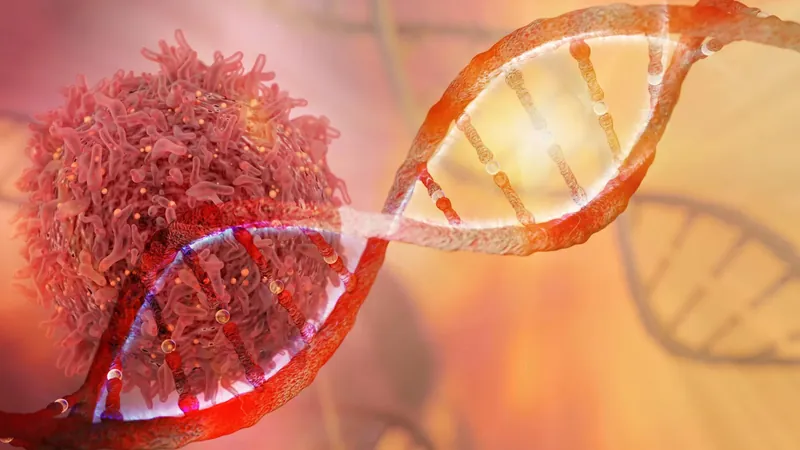
Galápagos Tomatoes Defy Evolution by Reverting to Their Ancient Roots
2025-06-25
Author: Wei
A Stunning Development in Plant Evolution
On the rugged, black volcanic islands of the Galápagos, wild tomatoes are turning heads by undergoing an unexpected transformation: they're de-evolving. Yes, you read that right! These tomatoes are shedding millions of years of evolution to reconnect with an ancient genetic state, resurrecting long-lost chemical defenses.
The Mystery of Reverse Evolution
Recent research from the University of California, Riverside, published in *Nature Communications*, has unveiled this baffling phenomenon termed "reverse evolution"—a hotly debated concept among evolutionary biologists. Typically, evolution is thought of as a one-way street leading to sophisticated adaptation, not a retreat back to ancestral traits.
The Chemical Defenders: Alkaloids
These extraordinary tomatoes are producing alkaloids, bitter molecules that function as built-in pesticides. While the Galápagos are famous for their unique animal life, plants here also need their defenses against threats like insects and fungi. The discovery sheds light on the mechanisms plants employ to survive harsh conditions.
A Tale of Two Islands
The research team collected over 30 tomato samples across various island locales. They found that while tomatoes from the older eastern islands produced alkaloids akin to modern cultivated varieties, those from the younger, harsher western islands bore chemical signatures reminiscent of their distant ancestors—alkaloids not seen in tomatoes for millions of years.
Geography Matters: A Return to Ancestry
Interestingly, the difference is rooted in stereochemistry, which refers to how atoms are arranged in three-dimensional space. Researchers discovered that altering just four amino acids in an enzyme could shift the tomato’s chemistry from modern to ancestral. They confirmed this by engineering tobacco plants to produce these ancient compounds!
Nature's Response to Environmental Pressures
The environmental conditions on these younger, less-developed western islands may be prompting this chemical throwback. As researcher Adam Jozwiak notes, the ancestral alkaloids could provide better defense in the more brutal surroundings of these younger islands.
Trailblazing Scientific Insights
This groundbreaking finding challenges long-held beliefs about evolution's linear nature. While cases of ancient traits resurfacing have been documented in other species, the clarity of this tomato study is striking. "Some people don’t believe in reverse evolution, but evidence supports a return to an ancestral state," Jozwiak asserts.




 Brasil (PT)
Brasil (PT)
 Canada (EN)
Canada (EN)
 Chile (ES)
Chile (ES)
 Česko (CS)
Česko (CS)
 대한민국 (KO)
대한민국 (KO)
 España (ES)
España (ES)
 France (FR)
France (FR)
 Hong Kong (EN)
Hong Kong (EN)
 Italia (IT)
Italia (IT)
 日本 (JA)
日本 (JA)
 Magyarország (HU)
Magyarország (HU)
 Norge (NO)
Norge (NO)
 Polska (PL)
Polska (PL)
 Schweiz (DE)
Schweiz (DE)
 Singapore (EN)
Singapore (EN)
 Sverige (SV)
Sverige (SV)
 Suomi (FI)
Suomi (FI)
 Türkiye (TR)
Türkiye (TR)
 الإمارات العربية المتحدة (AR)
الإمارات العربية المتحدة (AR)